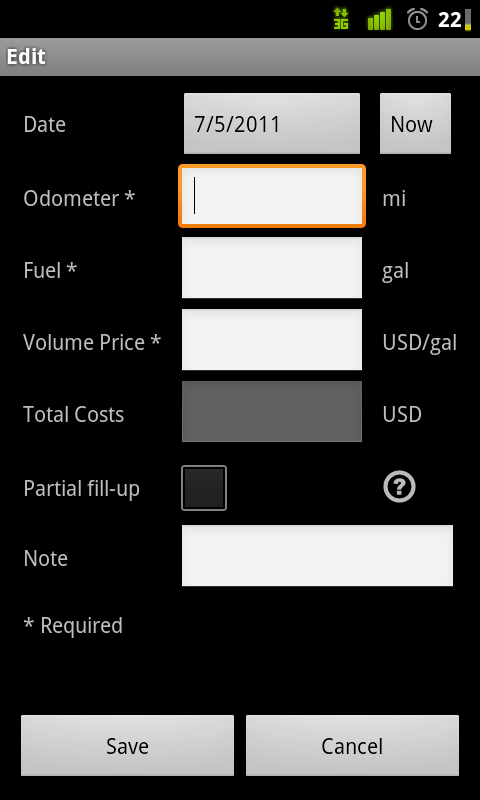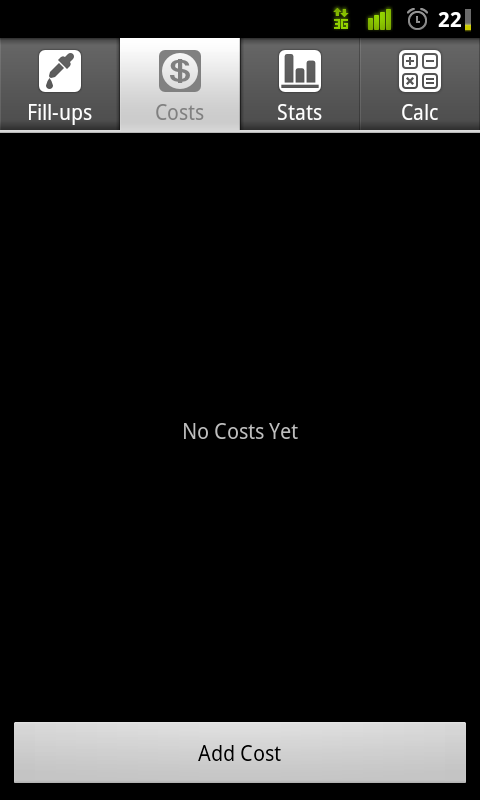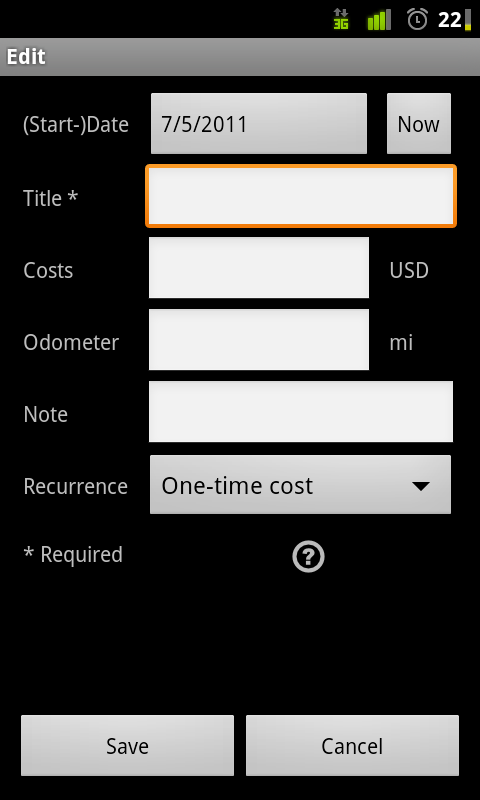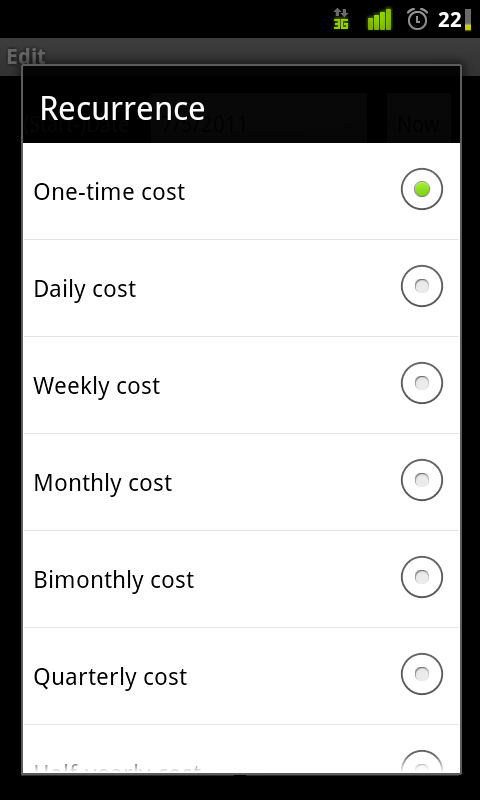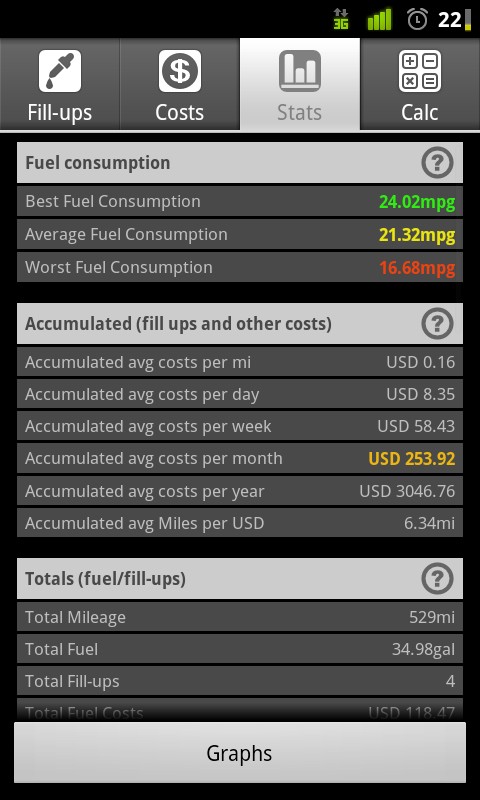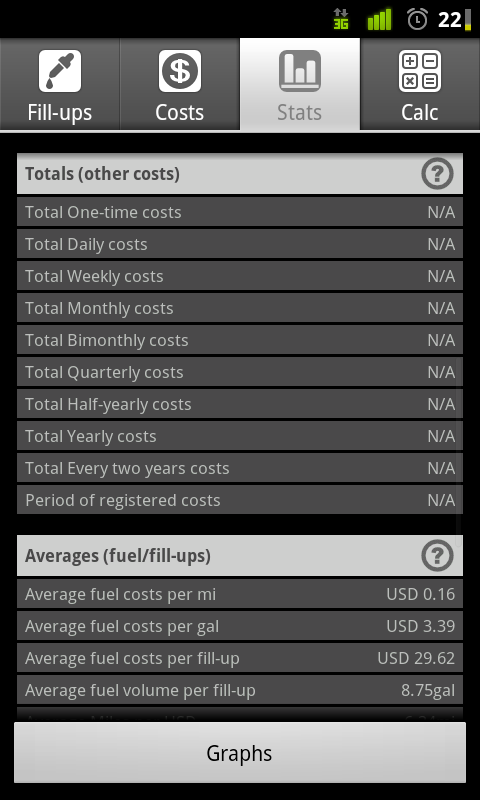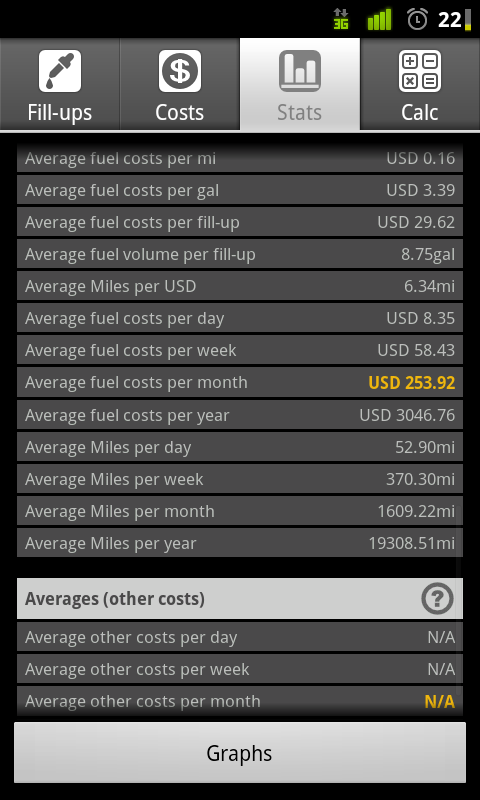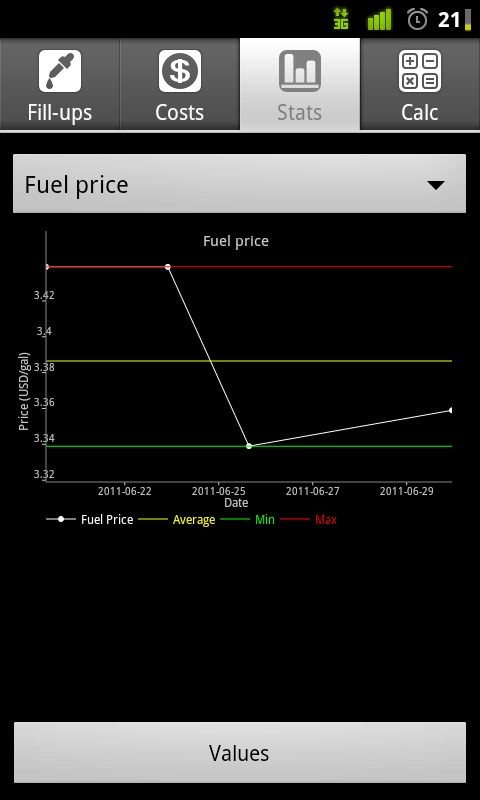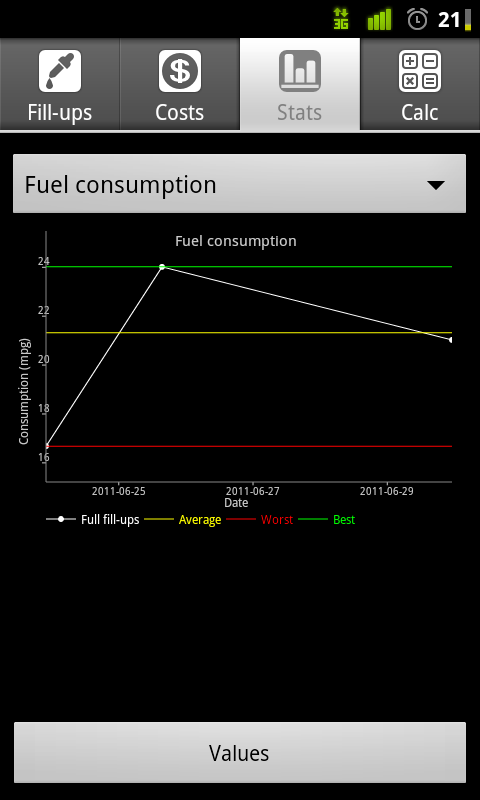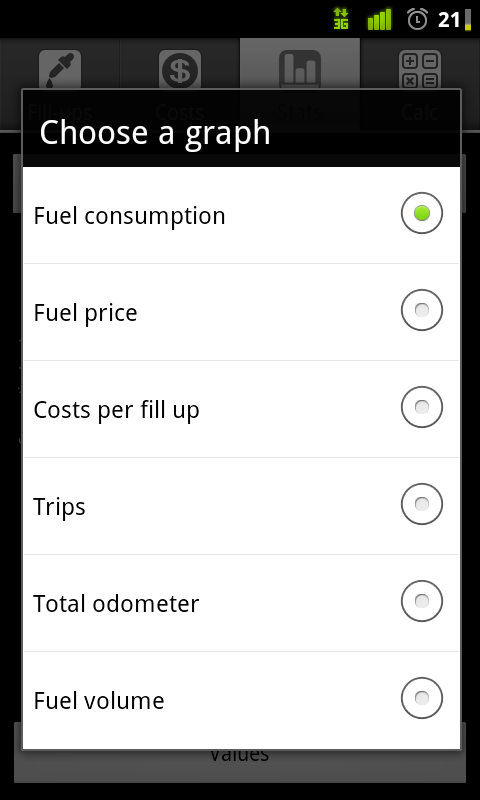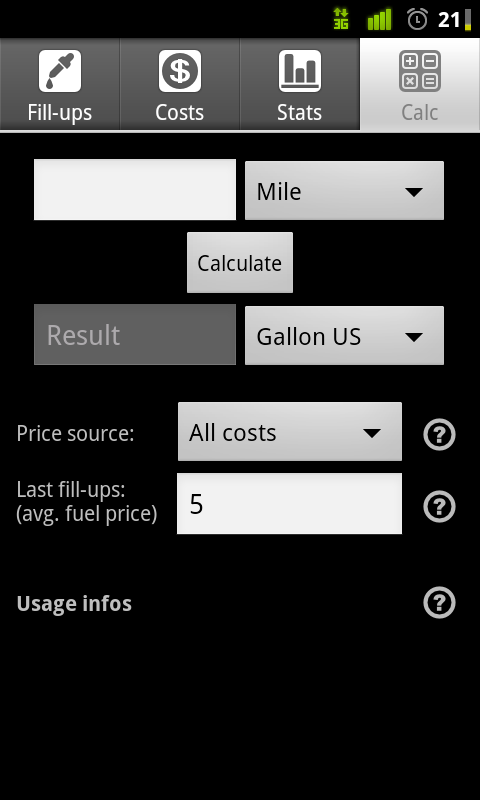Android Quick App: FuelLog
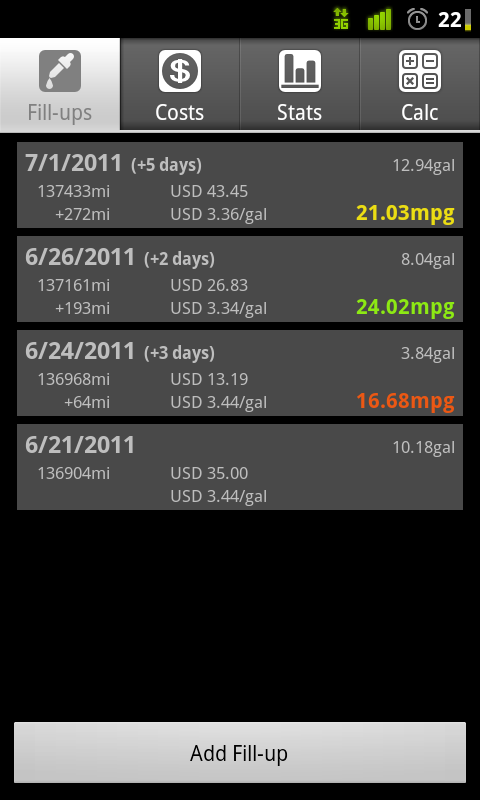
Get the latest news from Android Central, your trusted companion in the world of Android
You are now subscribed
Your newsletter sign-up was successful
In case you can't tell, I really, really like saving money on gas. I've talked about GasBuddy on more than one occasion, and the almost natural complement to that would be FuelLog. FuelLog is a thorough, straightforward app that tracks your average gas mileage as well as cost over time.
At it's core, FuelLog is all about tracking your fill-ups and giving you feedback on your miles-per-gallon, as well as keeping you informed about your cost during each fill-up and how many days have transpired between fill-ups. It's graphically plain, but it doesn't need to be popping, just functional. And functional it is.
You get yourself started by "Add Fill-up" button. From there, you're taken to a screen with all the essential information: odometer reading, how much fuel you bought, and the cost-per-gallon. From there, FuelLog does all the appropriate math and you get your first reading. There's also an option to add a note, say, that you just towed a trailer cross-country, so that's why your gas mileage is probably in the dumps.
The more fill-ups you add, the better FuelLog gets. With more information, FuelLog can tell you your best gas mileage, your worst, and your average. This is denoted by the green, red, and yellow mileages on the list screen, but really stands out when you move to the Stats tab.
The Costs tab is for any incidentals (like repairs) that you might have to pay for your vehicle. It's got a pretty expansive list of options, ranging from a one-time cost to monthly and even quarterly. There's still the standard fields for odometer and costs, but you can also title the expense (like "Ran into a tree") and add a note.
The Stats tab is one of the more impressive features of FuelLog, giving you two choices: Graphs or Values. Values is a series of tables, showing you things like fuel consumption, accumulated costs, total fill-ups and fuel amounts bought, total costs, and a long table of averages. It's fairly comprehensive, and if there's anything you needed to know about your spending or driving habits, it's here.
When you flip over to the graphs, you're presented with a single line graph, but you can change what you're viewing. This is one of the features that illustrates how powerful FuelLog can be as it continues to accumulate more data about you. Don't think you're limited to just one graph, either. While you can only view a single graph at a time, there's plenty to pick from, like fuel consumption, trips, total odometer, and fuel price. For the visual learners among us, this is pretty key.
Get the latest news from Android Central, your trusted companion in the world of Android
The last tab is a calculator to help you estimate how many gallons you'll burn if you drive a certain number of miles or the opposite, how many miles you're likely to be able to drive based on a certain number of gallons in your tank.
Overall, I think FuelLog is essential for any cost-minded people, especially if you care about improving your driving habits. Fortunately, FuelLog is free, but not without its limitations. The free version only remembers a max of 10 points on your graphs, so if you want to track things long-term, I'd suggest ponying up the ~$2.72 for the license key. The full version also gets rid of ads as well as letting you import or export a file into FuelLog, so you can keep a spreadsheet on your computer without much hassle.
Download links and more pictures are after the break.
